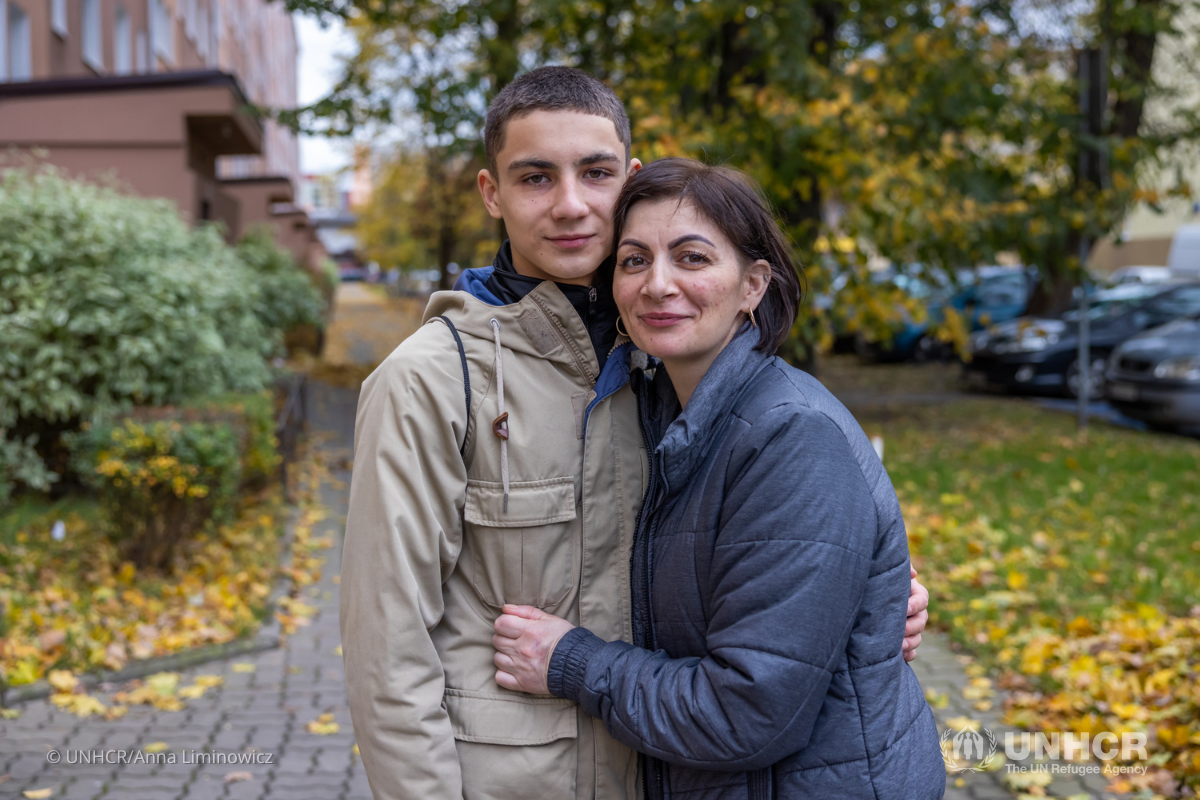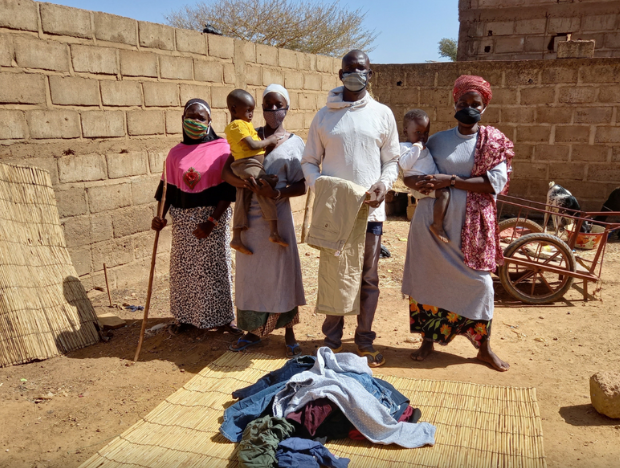World Handwashing Day: Three refugee-led initiatives that are helping fight back COVID-19
Frequent and proper handwashing with soap and water is one of the most important measures to reduce and prevent the spread of COVID-19 and many other infectious diseases. But for millions of refugees living in crowded camps and urban areas - with weak and over-stretched healthcare systems - accessing clean water and sanitation are a daily challenge.
To meet the water and sanitation needs of refugees, the UN Refugee Agency has scaled up efforts to strengthen health and hygiene in refugee camps. In many cases, these efforts include providing financial support to local refugee-led businesses that are producing and selling soap and other hygiene products in their local communities.
Here are just three examples of these initiatives:
Soap-making trainings at Inke refugee camp
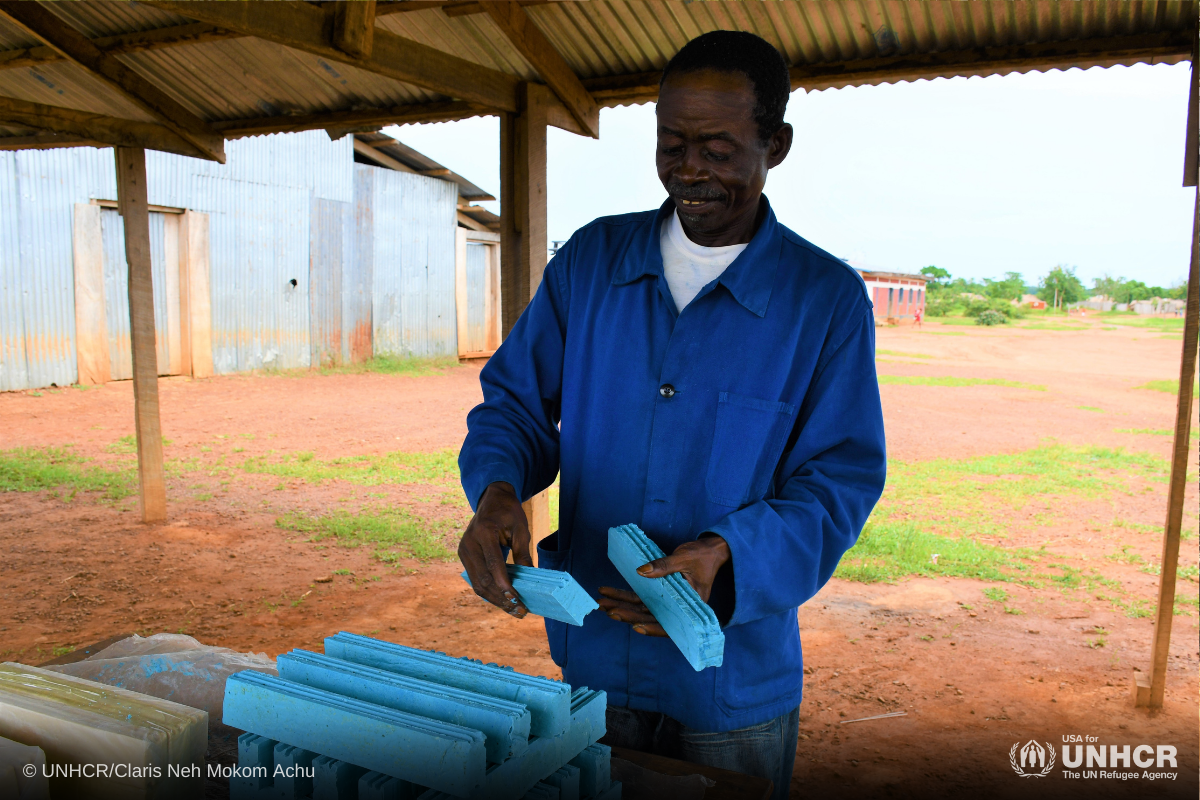
“Everyone here is worried about coronavirus. Since it started, humanitarian agencies informed us that we should wear masks and wash our hands regularly with soap and avoid crowds,” says Jean de Dieu.
Jean, a father of seven, was forced to flee the Central African Republic (CAR) with his wife and children in December 2012, leaving everything behind. The family found safe haven at the Inke refugee camp in the Democratic Republic of the Congo, where Jean quickly started making and selling homemade soaps to refugees and the local Congolese community.
During the coronavirus pandemic, his business has turned into a health service for the community. Together with five other refugees from the CAR, and with the support of the UN Refugee Agency, Jean has worked hard to meet the growing demands for soap - for more than 18,000 people living at the camp- and has trained other refugees to scale up the production capacity. With Jean’s leadership, there is now a network of 120 refugees soap makers helping to keep the camp healthy and safe.
“I have trained more than a hundred other refugees in how to make soap since I arrived here. With prices going up and things becoming scarce, we took this opportunity to increase our soap production and help people prevent the coronavirus.”
Distributing hygiene products in Niger
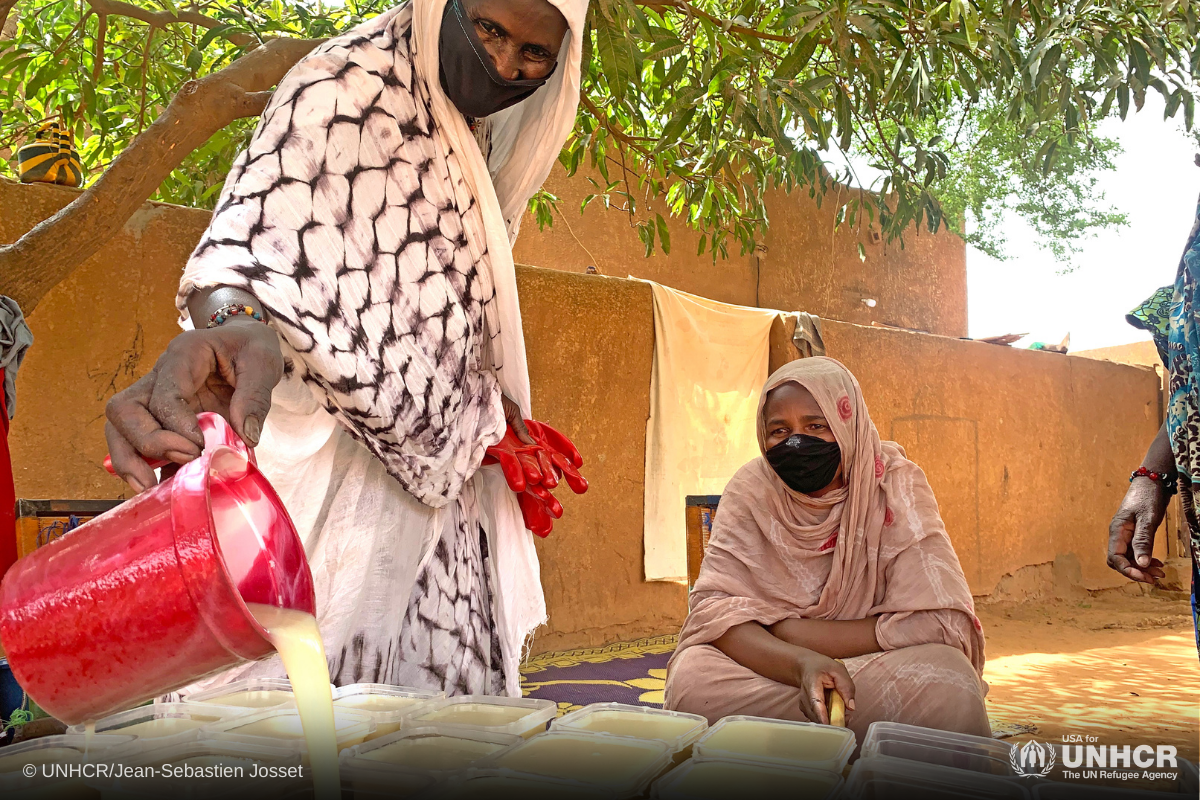
In 2019, UNHCR and local partner Forge Arts, created a skills training program for Malian refugees to teach them how to make hygiene products while earning a small income. With the onset of the coronavirus pandemic, the once small self-help program soon grew into a “factory” that produces free sanitation products.
Nearly 300 refugee women are churning out bars of soap, liquid hand wash, bleach and water containers every day to respond to the increasing demand for hygiene products during the pandemic.
“We are not only helping to fight this disease but are also learning new skills that will help us when we return home,” says Nicole, a refugee from Libya.
To ensure that working conditions adhere to the World Health Organization’s guidelines, UNHCR and partners implemented hygienic preventive measures, including raising awareness of the virus, handwashing and wearing masks.
“We have now adapted and we work with no more than ten people at a time to comply with the preventive measures. We make up to 30 units of soap a week,” adds Fatouma, another Malian refugee working at the factory.
The UN Refugee Agency has extended the skills training program to other refugee communities in cities across Niger, to help them fight back COVID-19.
Selling bars of soap in Ecuador
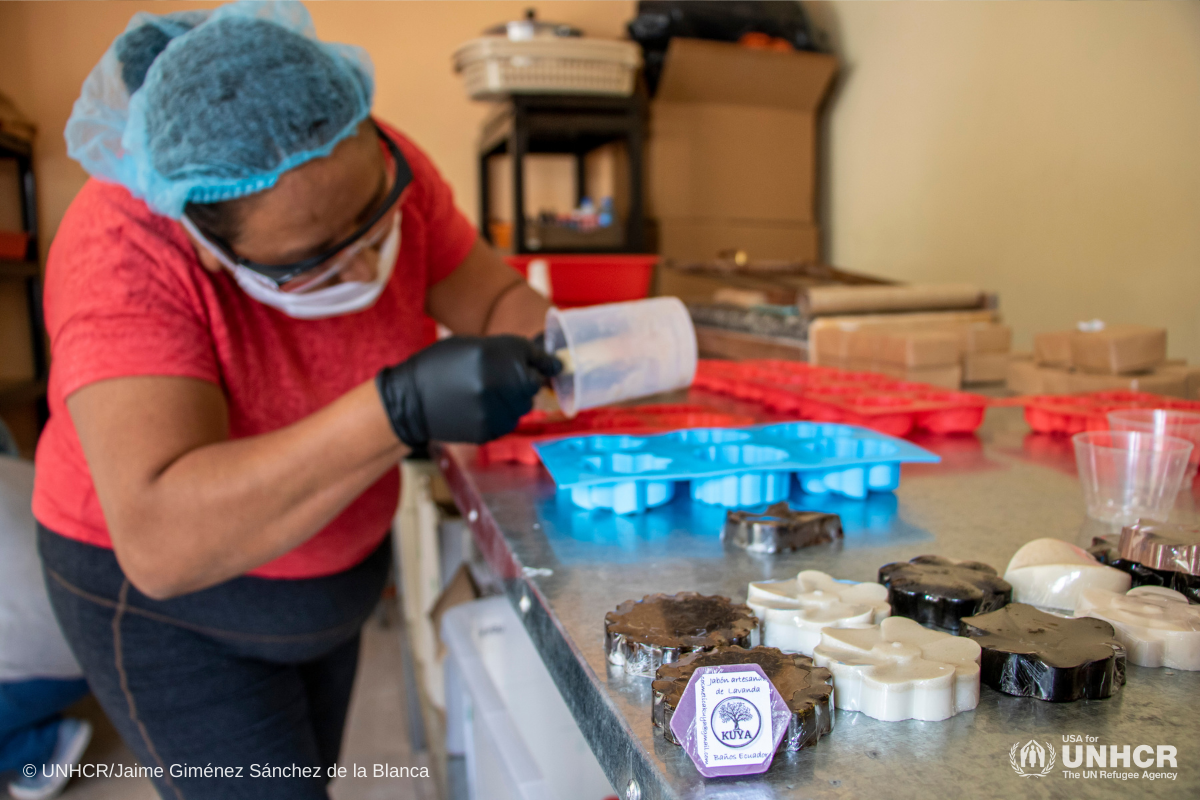
For a savvy group of Venezuelan refugees and host community members, the growing need for soap during the pandemic was the inspiration for a new business – Kuya soap. Kuya, which means big tree in the Kichwa indigenous language, is helping provide sanitation resources to a community that has been deeply-hit by the coronavirus.
Ecuador has struggled to contain COVID-19 which has deepened the vulnerability of more than 400,000 Venezuelan refugees and migrants who have sought refuge in the country.
UNHCR and local partners have been working hard to develop entrepreneurship projects to support local livelihood initiatives that can help mitigate the economic impact of the virus while also helping fight back the spread of the virus.
How you can help
This World Handwashing Day, join USA for UNHCR in providing clean water and hygiene services to displaced people around the world by becoming a monthly donor. Your donation could mean the difference between life and death for a refugee in need.

